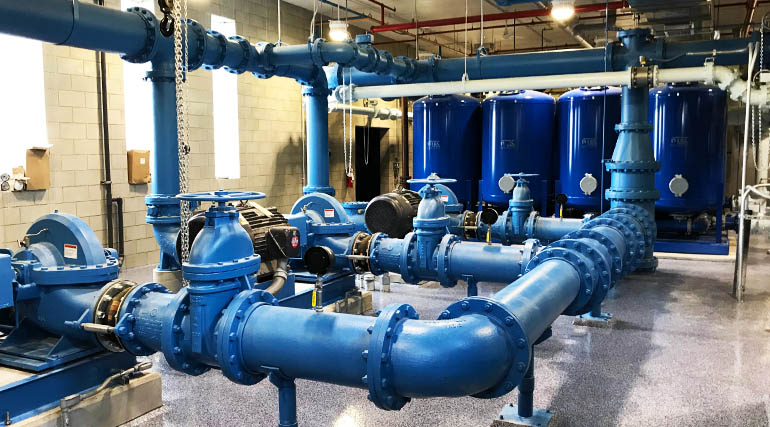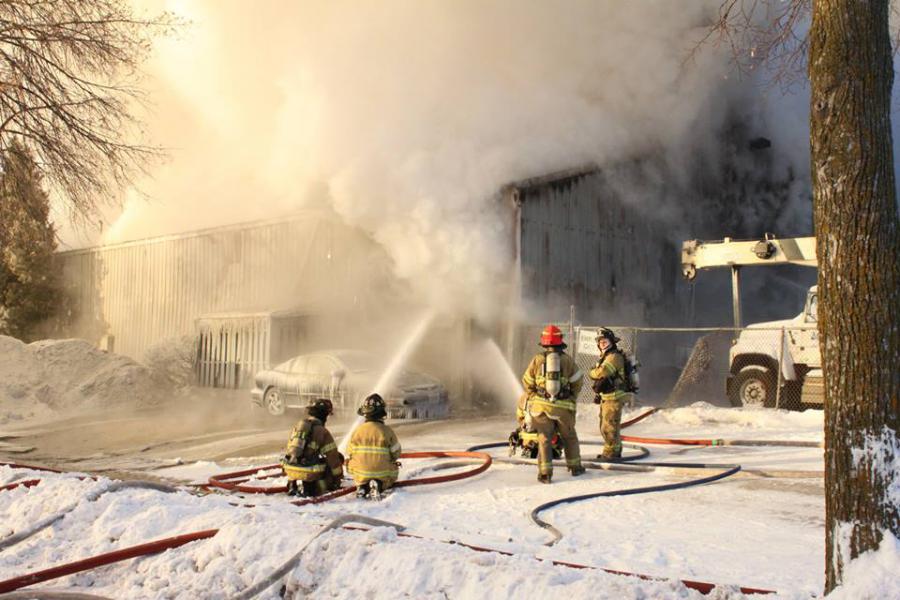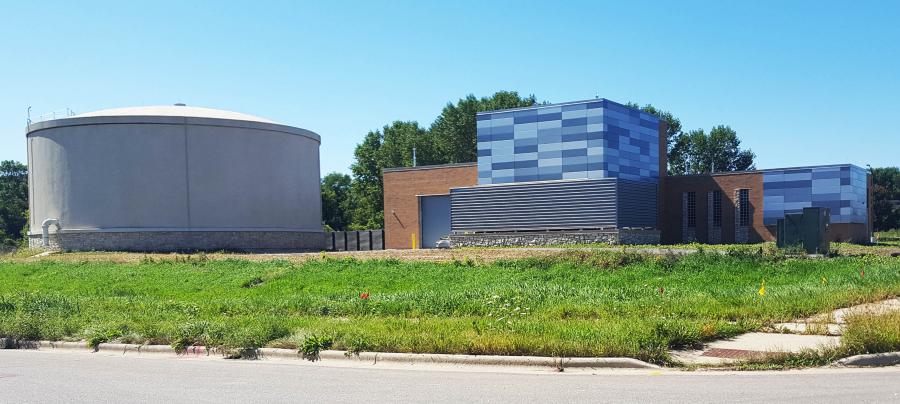Madison Water Utility adds first new well in more than a decade
posted

---
Madison’s water system was supposed to look a lot different by now.
According to Madison Water Utility’s 2006 Master Plan, the utility would add as many as seven new municipal water wells before 2020, bringing additional supply to every part of the city.
But it didn’t happen that way. This month, Madison Water Utility is adding its first new well in 12 years, the longest the utility has ever gone without building a new well.
"We’ve been putting most of our money into existing facilities," explains MWU principal engineer Al Larson.
Instead of adding new wells, Larson says the utility spent the last 12 years reinvesting in aging infrastructure – replacing water mains, rehabbing pump stations, rebuilding an existing well, and adding treatment like iron and manganese filtration at some wells.
What changed
Over the last 12 years, Madison has seen a dramatic decline in water use while its population continues to grow. Annual water use in Madison has dropped by almost 2 billion gallons, from 11.3 billion in 2006 to 9.4 billion in 2017.
"A lot of things happened. We had the Great Recession, so we had less building going on. Then the building trends changed. There’s been a shift from houses on 10,000 square foot lots with significant yards. The philosophy now is that you’re going to go away from individual yards and have more common spaces."
Smaller yards, more infill development, more efficient washing machines, toilets and dishwashers, and some very rainy summers all add up to declining water use, something few predicted back in 2006. Back then, people living in single-family homes in Madison used more than 68 gallons of water per-person per day on average. Today, that number is 55.
"Our total water system capacity is between 60 and 70 million gallons a day,” Larson says. “On an average day, the city uses 26 million."

But Larson insists that despite the big drop in water use, the city needs the new well facility on Tradewinds Parkway, constructed at a cost of $5.9 million. Without it, he says, there’s no easy way to fight fires south of the Beltline on Madison’s southeast side.
"That whole part of the city – that pressure zone – only had one well in it, up on Spaanem Avenue. Water would have to flow through the pipeline, go all the way down, underneath the Beltline, and basically almost all the way to McFarland. The hydraulic distance is too great."
Pumping and storing enough water to protect the city from fire is a fundamental part of Madison Water Utility’s mission. The utility also has to make sure it can handle an unexpected failure at a facility. Larson recalls an issue at a west side well and reservoir in 2008 that caused the well to stop pumping.
"We had a switch problem and we lost the pump that fills the (water tower), and basically it drained,” he recalls. “And there were people up on hilltops, they were out of water. We went and opened hydrants, and all we had was this sucking sound. When you’re planning a water system, you have to assume that some wells will be offline."

A new plan for a new age of conservation
Developing a new, comprehensive master plan has taken Madison Water Utility the better part of two years. The new plan looks at the hydraulic needs of the city – getting enough water to the edges of Madison as it grows – while continuing to care for aging, deteriorating infrastructure in older neighborhoods. Larson says the Madison can expect more wells, just maybe not at the same pace as the utility used to build them.
"We need a well on the west side, possibly two, by 2040. On the east side, I think we’re talking about one additional well too. We have adequate supply right now. But we do have wells break down, and what happens then? We have to be ready."
